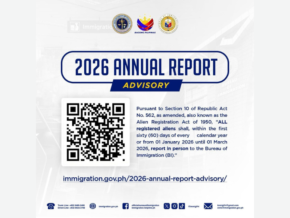(Exact) Change has come: “No Shortchanging” bill lapses into law
It’s something that seems to happen only in the Philippines: one minute you’re paying for everything you bought; next thing you know, you’re either digging in your pockets looking for loose change or receiving candy from the sales person. If you don’t you’ll either go out of the store without change or without the product you wanted to buy.

UNDER REPUBLIC ACT 10909, all establishments will be required to have change. No ifs, ands, or buts.
Well, this, and other situations similar to this, will soon be a thing of the past thanks to Republic Act (R.A.) 10909, also known as the No Shortchanging Act of 2016.
RA 10909 lapsed into law last July 21, 2016 after the outgoing Aquino administration failed to either approve or veto it after it was submitted early in June 2016.
Under the No Shortchanging Act, businesses that shortchange or fail to give exact change to any consumer will be penalized as follows:
● First offense: P500 or 3% of their gross sales on the day of the violation, whichever is higher
● Second offense: P5,000 or 5% of their gross sales on the day of the violation, whichever is higher
● Third offense: P15,000 or 7% of their gross sales on the day of the violation plus a 3-month suspension of their license to operate
● Fourth offense: P25,000 or 10% of their gross sales on the day of the violation along with the revocation of their license to operate
They’ll also be forced to pay the total amount of change they were unable to give. The same law also does not allow businesses to give change in the form of other products, or even to ask the customer to allow them not to give change, no matter how small the amount.
The law also requires businesses to have price tags on any goods and/or services they offer. This ensures that businesses will not mislead customers into not paying the price they should for any goods or services offered.
The No Shortchanging Act outlined the procedures in how you can file a complaint with the Department of Trade and Industry (DTI), the implementing agency for the act:
1. Write a letter of complaint to the DTI no more than 10 working days or two weeks after the incident.
2. DTI will conduct an investigation within 10 working days of receiving the complaint. They will also issue a notice to the establishment involved.
3. After a full investigation, DTI will then issue its decision and findings not more than 30 days after the incident.
Expect an information drive to come from the DTI once they’ve ironed out the kinks of the system, i.e. finalizing the implementing rules and regulations for RA 10909.
Here’s the full text of RA 10909, taken from senate.gov.ph:
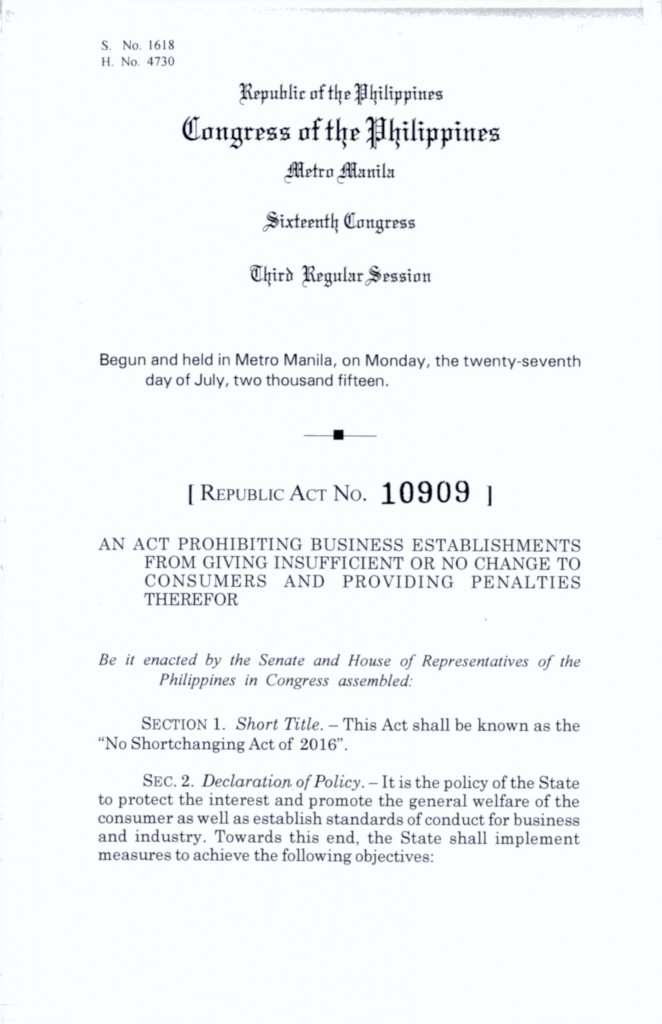
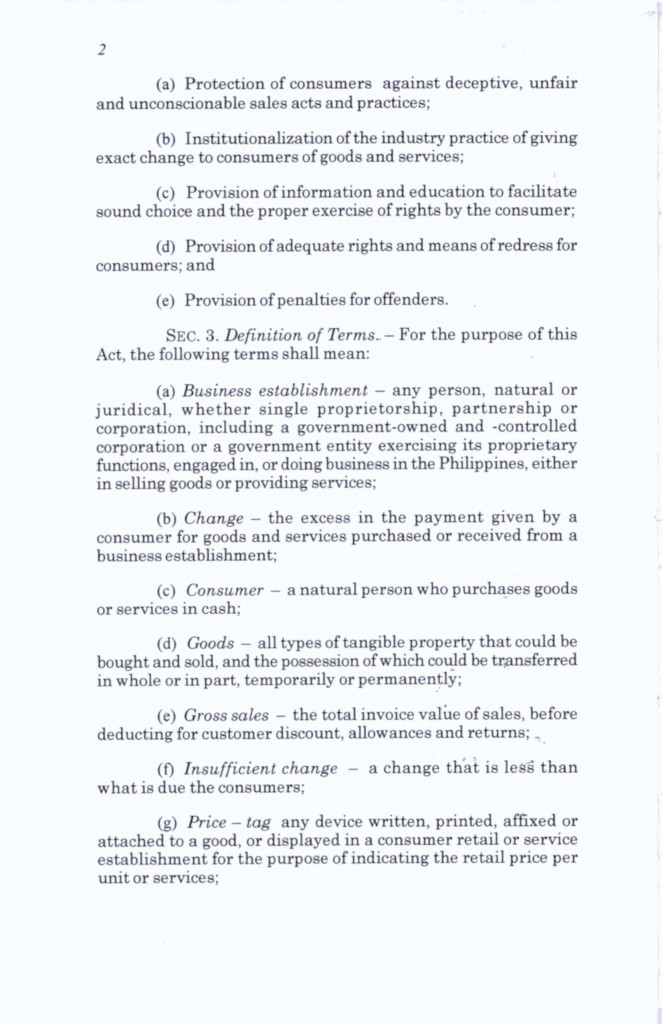
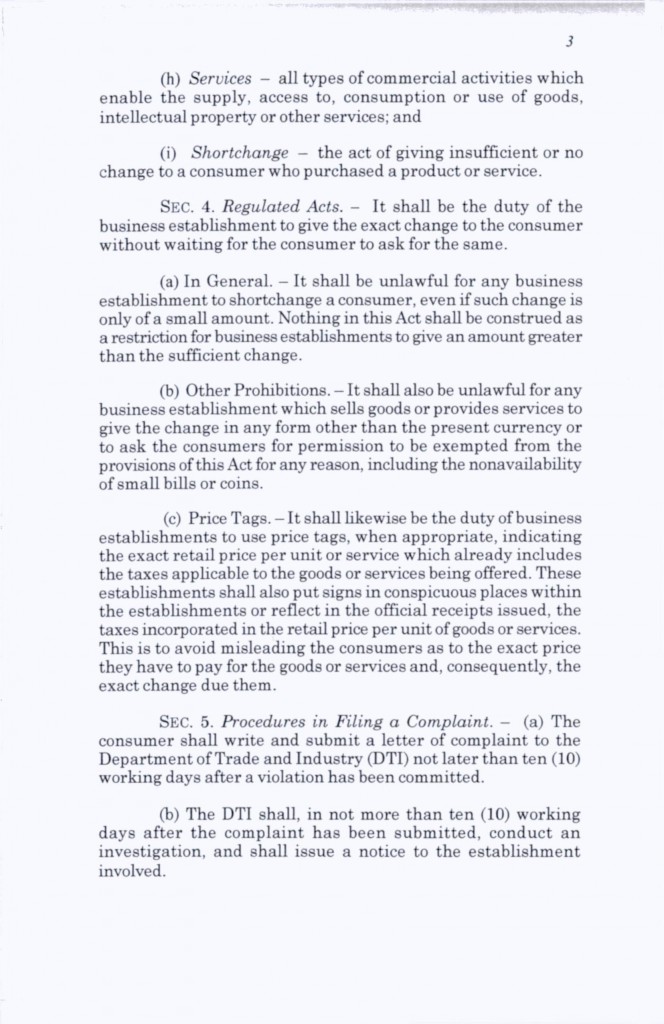
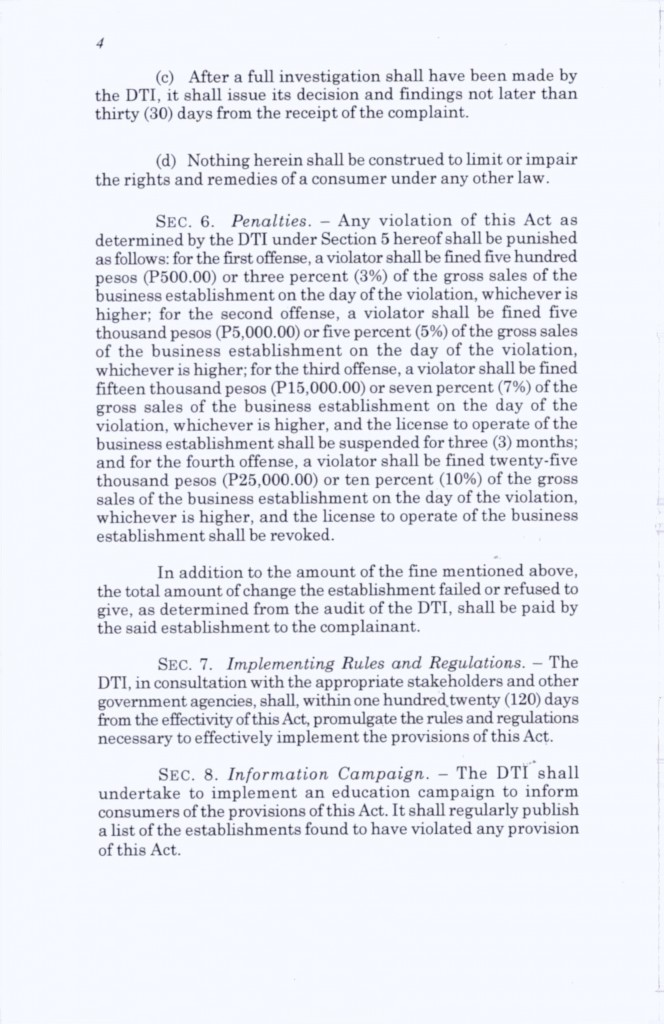
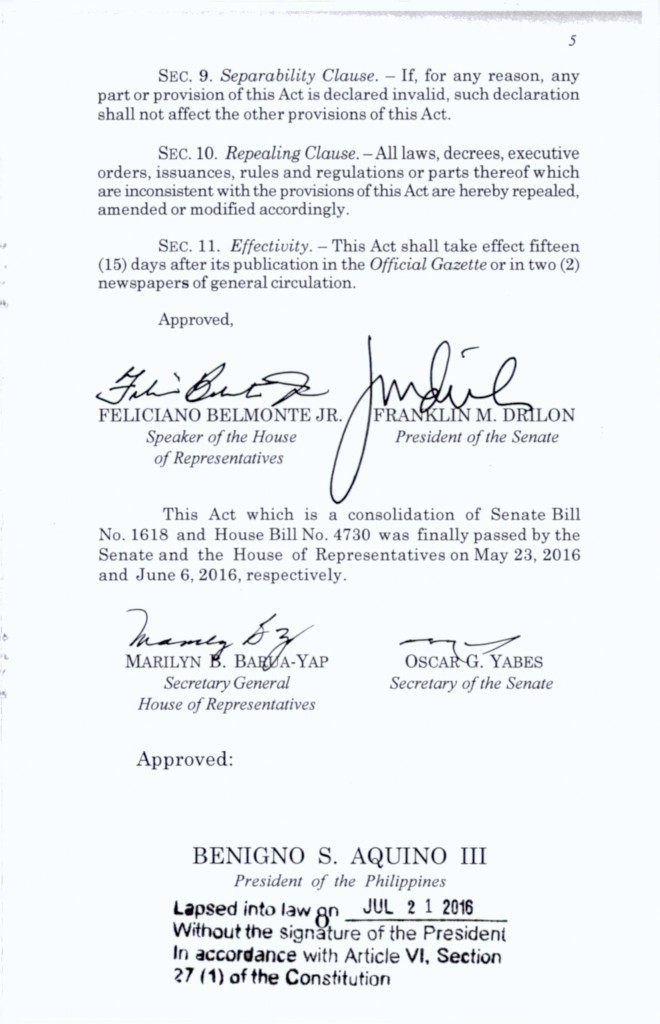
Source: CNN Philippines, Spot.PH, The Philippine Star, Rappler






